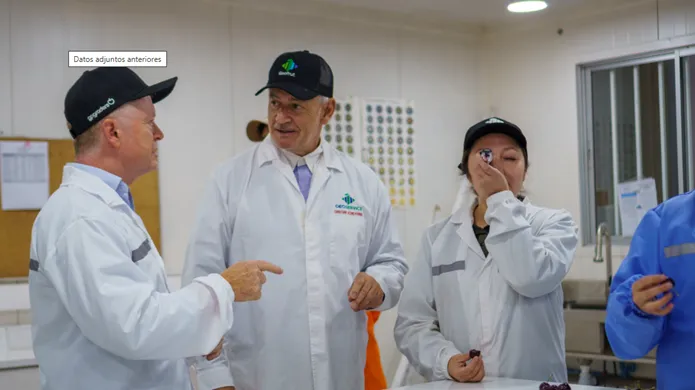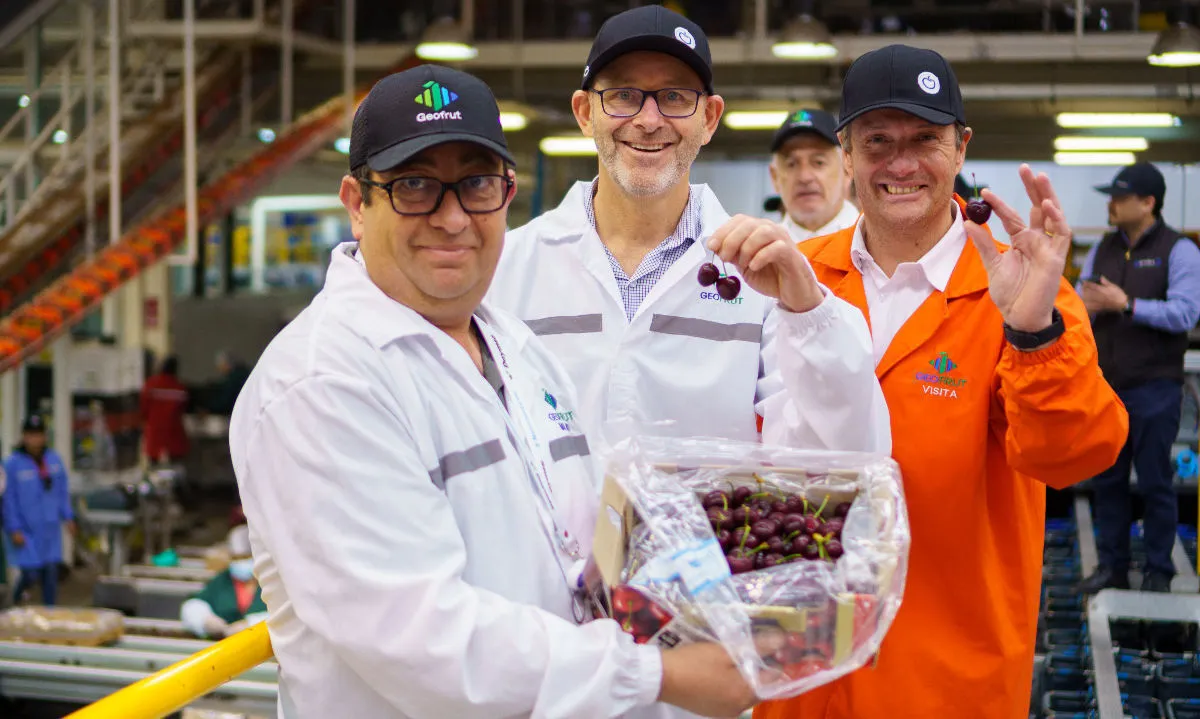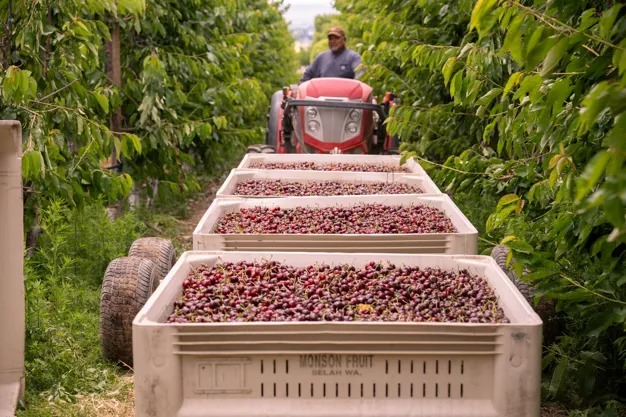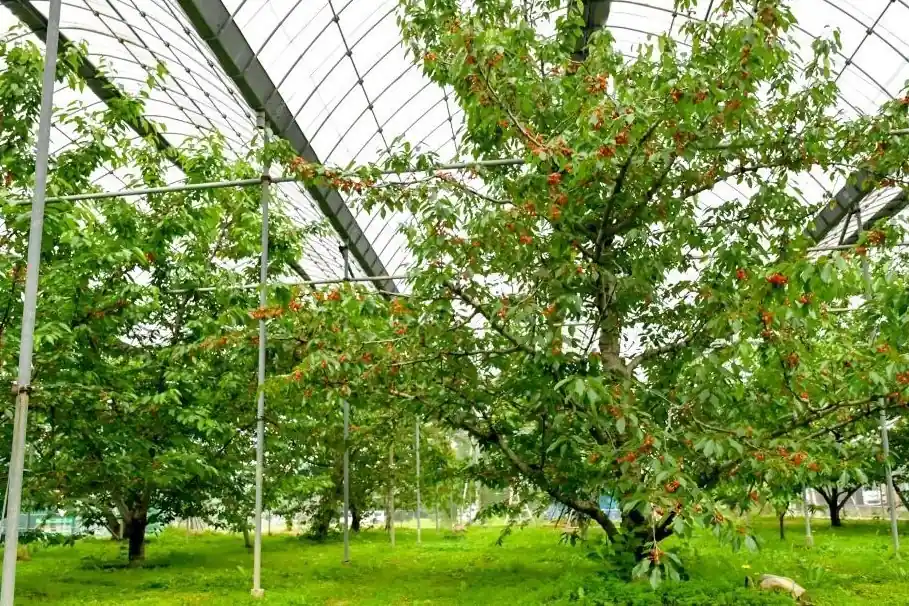“Chile is the most exciting fresh produce market in the world,” says Stuart Payne, Co-Director and CEO of GP Graders. “We are committed to supporting the Chilean industry through our technologies and contributing to its success.”
Chile is undoubtedly the world’s leading exporter of cherries and is currently at the epicenter of a technological revolution thanks to the incorporation of artificial intelligence in sorting and fruit packaging processes.
It is in this context that GP Graders, an Australian manufacturing company with over 60 years of experience, is driving this change with its innovative platform, operational interface GUI, and its new GpVision radiai™ AI software.
Founded in 1963 in Mount Waverley, Australia, GP Graders has established itself as a global leader in agricultural technology. The company, now led by Stuart Payne, Co-Director and Managing Director, has won numerous awards for its contributions to the manufacturing and export industries.
 Immagine 1: Stuart Payne e Cristian Echeverría.
Immagine 1: Stuart Payne e Cristian Echeverría.
Among its accolades are the Victorian Governor's Export Awards and the prestigious Premier’s Award for Australian Exporter of the Year in 2014. Additionally, in 2016, Payne was inducted into the Victorian Manufacturing Hall of Fame Roll of Honour.
Since its first sale to Copefrut in 2001, GP Graders has been deeply involved in Chile’s cherry and blueberry industries. This year, the company took a further step forward by constructing its first complete production line in Curicó.
Stuart Payne, on his third visit to Chile in 2024, emphasizes that the country is not only one of the most dynamic markets for cherry production but also a fertile ground for technological innovation.
GP Graders’ Chilean branch, now with a team of 42 people, is consolidating its growth in the region and implementing advanced artificial intelligence in Chile.
 Image 2.
Image 2.
How Does It Work?
The technology developed by GP Graders accurately detects size, color, and even the most complex defects in cherries. This advanced system not only identifies problems but also enables GP Graders’ operators to make quick decisions about how to handle their products, whether it is sorting by color or size. It ensures superior quality and precision, achieving over 98% accuracy in color and size analysis.
Artificial intelligence is being incorporated into many industrial processes as it thinks faster than humans and learns from every new defect it detects, recording it to prevent it from passing in future batches.
GP Graders has become an expert in defect detection in Chile, thanks to its constant innovation.
Next year, the company plans to introduce a new feature that will further revolutionize the industry.
Chile’s Red Gold and Future Projections
Regarding the implementation of artificial intelligence, Francois Lovens, General Manager of GP Graders, highlights the importance of the human team behind the technology. “A company does not work without people, and today we have a very professional team,” he explains.
“Our company has developed an advanced vision system that captures 36 high-definition photos of each cherry using Full HD side and vertical cameras—an extraordinary technical achievement. Moreover, the new platform is more user-friendly for operators and simplifies decision-making,” he adds.
“We are among the first to have an artificial intelligence system. This system not only prevents problems and provides recommendations but also learns from various defects it encounters, including newly detected ones,” says Lovens.
“Looking ahead to 2025, the company will face a new challenge: deciding whether artificial intelligence will continue to provide recommendations or move towards decision-making, always with human control over each final process execution. Humans remain essential,” he adds.
 Image 3: From left to right: Mario Lazo, Andrew Martin, and Francois Lovens.The implementation of this technology has gone hand in hand with a strong emphasis on training. This year, GP Graders organized training courses in Chile to ensure operators can maximize the software’s potential. According to Payne, the system is easy to use, but its impact on efficiency and product quality is extraordinary.
Image 3: From left to right: Mario Lazo, Andrew Martin, and Francois Lovens.The implementation of this technology has gone hand in hand with a strong emphasis on training. This year, GP Graders organized training courses in Chile to ensure operators can maximize the software’s potential. According to Payne, the system is easy to use, but its impact on efficiency and product quality is extraordinary.
With Chile leading the world in cherry exports, especially to markets like China, GP Graders’ innovations are proving to be a key element in maintaining the country’s competitiveness. The incorporation of artificial intelligence not only enhances the final product’s quality but also optimizes resources and meets the growing demands of international markets.
The Chilean industry’s commitment to artificial intelligence technology exemplifies how innovation can transform traditional sectors like agriculture. As the cherry industry continues to grow, these companies’ dedication to technological excellence ensures the country maintains its position as a global leader, delivering high-quality cherries to tables worldwide.
On November 22, the Australian Ambassador to Chile, Andrew Martin, visited the Geofrut plant and shared his perspective, stating that Chile’s cherry industry has reached unprecedented growth due to advanced technologies like those developed by GP Graders. “What is happening in Chile is incredible. The sector’s growth in recent years is out of this world, largely thanks to access to new technologies for processing such a large quantity of cherries.”
The collaboration between Australia and Chile in technology and agriculture strengthens the crucial role of innovation in transformation.
Cristian Echeverría, co-founder of Geofrut, a company that has been in the market for 33 years, also emphasizes that the sector’s future is marked by sustained growth and increased investments in new plantations. “This year, we expect a record growth in export levels, and from 2025 onwards, we should further accelerate the planting of cherries. We are talking about 150–160 million boxes, and by 2030, we should reach 200 million boxes to be sent to markets like China.”
The combination of high-quality agricultural work, efficient exporters, and cutting-edge technology not only ensures the sector’s expansion but also consolidates its position as a leading cherry exporter in the coming years.
Source: Diario Frutícola
Images: Diario Frutícola
Cherry Times - All Rights Reserved













